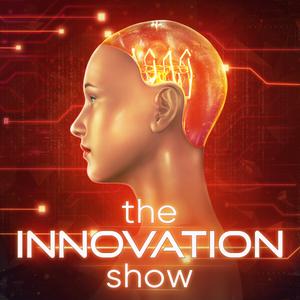
The Innovation Show
The Innovation Show
- 40 minutes 35 secondsHenry Mintzberg - Rebalancing Society
Rebalancing Society with Henry Mintzberg: Addressing Imbalances in Politics, Economy, and Community
In this episode, Aidan McCullen is joined by renowned business strategist Henry Mintzberg to discuss his book on radical renewal. Mintzberg explores the root causes of our current societal crisis, emphasizing the need for balance among the public, private, and plural sectors. They delve into historical and contemporary issues that have led to extreme imbalances, from capitalism's dominance post-1989 to today's political polarization. Offering insights grounded in history and strategy, Mintzberg advocates for a strengthened community sector to restore equilibrium. Addressing not only societal but also personal imbalances, Mintzberg highlights the urgency for action amid global challenges like economic disparity, environmental degradation, and political unrest. The conversation serves as a wake-up call encouraging listeners to engage in meaningful change at both the individual and community levels.
00:00 Introduction: Enough is Enough!
00:38 Welcoming the Guest: Henry Mintzberg
02:44 Understanding Imbalance in Society
05:47 The Role of Business and Government
08:05 Historical Context and Current Issues
11:30 The Concept of Rebalancing Society
18:16 Personal Responsibility and Action
23:56 Closing Thoughts and Call to Action
Find more info here: https://mintzberg.org/books/rebalancing-society
24 January 2025, 2:37 pm - 1 hour 20 minutesAidan McCullen - The True Origin of The Innovation Show
A conversation with Aidan McCullen, host of The Innovation Show and author of 'Undisruptable'.
This a re-edited version of Tech Tonic, the world's first AI Thought Show with hosts (and friends) Scott Wolfson and Kes Sampanthar. Each episode, they explore the world of artificial intelligence, emerging technologies, and their impact on our lives. With engaging discussions, expert guests, and a dash of humor, Tech Tonic provides a unique perspect.
Aidan shares his origin story, detailing his transition from professional rugby to digital transformation and media. Discover the inspiration behind his podcast, the importance of continuous learning, and the concept of 'the show before the show'. Aidan's journey is filled with insights on overcoming resistance, embracing reinvention, and the value of autodidactic learning. Don't miss this deep dive into the life of a true innovator.
00:00 Introduction and Initial Struggles
00:29 Welcome to the Innovation Show
00:58 Aidan McCullen's Journey
01:24 Early Days and Learning Curves
03:45 The Birth of the Innovation Show
05:59 Challenges and Resistance
10:07 Taking the Leap
11:26 Seth Godin and the First Episode
13:24 The Concept of Reinvention
18:45 The Power of Discipline and Consistency
29:05 Digital Transformation and Creative Destruction
34:59 The Power of Education and Strategic Alignment
36:03 Embracing Failure and the Path to Success
37:04 The Journey of an Autodidact
38:31 Overcoming Skepticism and Building Credibility
42:44 The Importance of Coachability and Learnability
46:10 The Role of Passion in Professional Growth
57:45 The Reinvention Summit and Its Vision
01:00:48 The Neuroscience of Learning and Thinking
01:07:13 The Journey and Future of Reinvention
01:16:26 Reflections and Final Thoughts
Find TechTonic here: https://www.youtube.com/@theAIthoughtshow/streams
#InnovationShow #AidanMcCullen #DigitalTransformation #ContinuousLearning #Reinvention #Podcast
17 January 2025, 7:20 pm - 8 minutes 20 secondsFueling Today with Tomorrow Eating the Seed Potato or Planting the Seed SnakeFueling Today with Tomorrow Eating the Seed Potato or Planting the Seed Snake
"Do Not Mortgage Your Future for Small Gains Now" - Nassim Nicholas Taleb
"Business leaders are being motivated and rewarded to heat their houses by burning their furniture." - Mark W. Johnson
In our pursuit of immediate comfort or short-term gains, we often sacrifice the foundations of future success. This principle is captured in countless cautionary stories. In this week's Thursday Thought, we explore those of the Irish Potato Famine, corporate strategy, and the unexpected world of collectible snakes. To build a sustainable future, we must resist the urge to mortgage it for fleeting rewards. As the old saying goes, "We do not inherit the Earth from our ancestors; we borrow it from our children." Similarly, our future isn't something we passively receive—it’s something we shape with the choices we make today.
The Irish Famine: Eating the Seed CornDuring the Great Irish famine, desperation led farmers to consume their seed potatoes—the very resource needed to secure future harvests. Fishermen sold their nets, and artisans sold their tools, sacrificing not just physical assets but the means of their future livelihoods. This poignant image of short-term survival at the expense of long-term resilience serves as a powerful metaphor for organisational decision-making.
In the corporate world, this dynamic plays out when companies sell valuable assets or slash critical investments in research and development and innovation to sustain short-term valuation. Consider Sears, a retail pioneer that, under financial pressure, sold off its highly profitable financial arms, including Discover Card and Allstate Insurance. These divestments provided immediate capital but stripped Sears of lucrative assets that could have supported its survival during the retail industry's famine. By "eating its seed potato," Sears left itself with little to plant for the future.
Efficiency-driven strategies are seductive because they deliver quick results and a sense of control. Yet, these strategies often resemble mining soil without replenishing it. Companies that prioritise cost-cutting and share buybacks over innovation may temporarily appease shareholders, but they risk sacrificing their ability to adapt and grow. The story of Heinz under CEO Tony O’Reilly is a cautionary tale.
To boost earnings, O’Reilly slashed R&D and marketing budgets, undermining the company’s long-term competitiveness. Bill Johnson, O’Reilly’s successor, later admitted, “We weren’t supporting our brands, and we weren’t being innovative at all…. In terms of cost cutting, the mistake for the industry, in retrospect, is that it did not take the cost out of the system. It took the cost out of the product.” Like farmers consuming their seed potato, Heinz prioritised immediate gain over future resilience, leaving it vulnerable to shifting market demands.
Planting the Seed Potato: Philips’ Strategic ReinvestmentPhilips serves as a masterclass in planting and replanting the seed potato for future success. (We discussed Philips with friend of the show and prolific author Paul Nunes, links here and video embed below). In 2006, while still profitable, Philips made the bold decision to phase out its incandescent lighting business, recognising that LEDs would soon become more cost-effective. Rather than eating the seed potato of its legacy business, Philips acquired smaller LED-focused companies, cultivating this new field until its LED division grew into a $7 billion powerhouse. By 2016, Philips had spun off its lighting business into Philips Lighting (now Signify), freeing resources for its next strategic planting.
In an impressive act of replanting, Philips pivoted to the healthcare industry, focusing on diagnosis and treatment equipment. Through careful planning and a balanced portfolio strategy, Philips invested heavily in this fertile ground. By 2017, most of the company’s revenue came from high-end medical equipment, cementing its place as a leader in the healthcare sector. This transformation was not an overnight miracle but the result of strategic foresight and the courage to reallocate resources from legacy crops to future harvests.
Planting the Seed SnakeOn this week's Innovation Show, our Keynote speaker at the Reinvention Summit, Seth Godin shared the story of Justin Kobylka. Justin is a pioneer in the snake breeding industry. Once a small-scale operation where pythons sold for $20, the market transformed thanks to the internet, which expanded access to collectors globally. Justin's key differentiator was his early investment in his facilities and the genetic quality of his pythons.
Many times, he might have sold off his prize python for a healthy reward and many times he resisted. Instead of cashing out by selling his most valuable snakes for immediate gain, he retained them to breed even more extraordinary future generations.
Conclusion: The Cost of Strategy DecayIn our forthcoming series with Gary Hamel, we discuss the concept of strategic decay. Strategies, like assets, have a finite lifespan. Over time, the competitive advantages that once fuelled growth erode. Rivals replicate best practices. Market dynamics shift. Without reinvention, even the most successful organisations fall prey to strategy decay.
This decay is exacerbated when companies rely on short-term fixes to prop up performance—share buybacks, cost-cutting, or selling off valuable assets. These actions create the illusion of health, but hey mask future problems. These problems are often inherited by an unassuming new leader, who soon discovers that damage done by her predecessor.
Organisations that thrive in the face of disruption are those that embrace innovation as an ongoing, foundational practice. This means fostering a culture of long-term thinking, experimentation, and creativity. It also requires the discipline to let go of what no longer serves the mission and the courage to invest in what does.
The choice is to burn tomorrow’s fuel for today’s warmth, or invest in building a sustainable fire that will burn brightly for generations to come.
15 January 2025, 9:50 pm - 42 minutes 55 secondsSeth Godin - This Is Strategy
Seth Godin - This Is Strategy | The Innovation Show
Join us on this episode of The Innovation Show with the inimitable Seth Godin, author of 21 international bestsellers that have profoundly influenced the way we think about work and art. In this engaging conversation, Seth delves into his latest book on strategy, emphasizing the importance of identifying your smallest viable audience, understanding and leveraging systems, and prioritizing long-term thinking over instant gratification. He shares valuable insights on why most people gravitate towards instructions rather than forging their own paths, the concept of 'elegant strategy,' and how viewing challenges as a game can make failures more manageable. Seth also explores the impact of AI on the workforce and the significance of systems in shaping our strategies. Whether you're transforming an industry, sparking a movement, or building a career, this episode is a must-listen for change-makers and innovators.
00:00 Introduction and Guest Welcome
01:19 Seth Godin on Teaching and Strategy
02:21 The Lego Metaphor and Strategy
04:54 Games, Systems, and Empathy
07:34 AI and Office Plankton
11:11 Understanding Systems and Change
16:10 Innovation and Elegant Strategies
21:47 The Role of Incremental Improvement vs. Innovation
24:00 Innovation Theater and Real Change
36:25 Long-term Thinking and Strategy
42:15 Final Thoughts and Conclusion
14 January 2025, 9:55 pm - 40 minutes 25 secondsEric von Hippel - Free User Innovation
Eric von Hippel - Free User Innovation | The Innovation Show
In this new series on The Innovation Show, we dive into the groundbreaking work of Eric von Hippel, MIT Sloan School professor and pioneer of free innovation. We explore how users—not just producers—drive transformative innovations, and how this paradigm has been overlooked historically. With intriguing examples such as the evolution of skateboards and center pivot irrigation systems, von Hippel illustrates the power of user-driven innovation. We also discuss the role of platforms like Wazoku and companies like Haier in harnessing the potential of free innovator communities. Eric shares his insights on how companies can leverage these external ideas and improve their own innovation processes. Don't miss this fascinating conversation on the untapped potential within each of us to innovate and create impactful solutions.
00:00 Introduction and Wazoku Acknowledgment
00:38 Meet Eric von Hippel
02:08 The Concept of Free Innovation
02:32 Historical Context and User Innovation
04:20 Examples of User Innovation
11:19 Crowdsourcing and Open Platforms
16:44 Challenges and Opportunities in Innovation
33:56 Altruism and Diffusion in Innovation
37:31 Open vs. Free Innovation
39:54 Conclusion and Resources
Find Wazoku
Find Eric von Hippel's resources including this book “Free Innovation”
12 January 2025, 5:25 pm - 12 minutes 45 secondsIt's Hard to Read the Label from Inside the Jar: Navigating Change from Within
Inside the Jar: Navigating Change and Innovation
In this week's Thursday Thought, we delve into the complexities of navigating change from within. Using quotes, research, and insights from the Innovation Show, we explore how our perception of individuality vs. being part of a larger whole affects our ability to adapt. Drawing parallels with superorganisms like beehives, the episode discusses how business and economic cycles, like Kondratiev waves, shape our world. Highlighting examples from companies like Sony, we examine the 'inside view' trap and the importance of stepping outside our immediate focus to see the bigger picture. Join us as we read the label from outside the jar and prepare for the future.
00:00 Introduction: Navigating Change from Within
00:57 The Human Condition: A Drop in the Ocean
01:22 The Beehive as a Superorganism
04:18 Kondratieff Cycles: Understanding Economic Waves
06:27 The Trap of the Inside View
10:20 Escaping the Jar: Embracing Change
12:32 Conclusion: Join Us at The Reinvention Summit
Full article here: https://thethursdaythought.substack.com/p/its-hard-to-read-the-label-from-inside
9 January 2025, 9:38 am - 58 minutes 45 secondsAre Humans Part of a Superorganism? - Byron Reese Part 1
In this episode of The Innovation Show, Aiden McCullen interviews Byron Reese, author of 'We Are Agora: How Humanity Functions as a Single Super Organism that Shapes Our World and Our Future.' The discussion delves into Byron's groundbreaking Agora Theory, which suggests that humans may function as part of a larger, conscious superorganism. Topics include the origins of life, the emergence of multicellular organisms, the complexity of DNA, and the potential impacts of understanding life as part of this collective superorganism. The conversation also touches on the role of death, the concept of emergence, and how these insights can apply to organizational strategies and societal progress.
00:00 Introduction to Agora Theory
02:40 Understanding Superorganisms
04:06 The Origin of Life and Cells
19:53 The Mystery of DNA
30:07 Understanding Multicellular Life
32:09 Symbiosis and Multicellular Origins
33:39 Theories of Multicellular Life
38:12 The Universe and Life's Complexity
44:02 DNA: The Blueprint of Life
47:11 Human Evolution and Intelligence
49:41 Bottleneck Events and Human Survival
55:02 Emergence and Superorganisms
57:46 Final Thoughts and Reflections
Links Aidan mentioned in the episode:
Men In Black sequence: https://youtu.be/OKnpPCQyUec?si=KSGb25FeP72Nvi7T
Family Guy: https://youtu.be/7et6-nByfw8?si=6zIfUIQE1XlFL-oH
Byron Reese: https://byronreese.com
5 January 2025, 9:53 pm - 10 minutes 13 secondsCorporate Bodies Under Stress: Balancing Immediate Survival and Long-Term Growth
In this episode of the Thursday Thought, we delve into the intricate balance between immediate survival and long-term growth, drawing parallels between the human body's stress response and corporate strategies. We explore the concept of temporal discounting, the impact of chronic stress on leadership, and the necessity of preparing for the future during times of calm. Featuring insights from Bruce Lipton, Art Markman, Henry Mintzberg, and Stan Deetz, along with quotes and research, this discussion highlights the importance of balancing short-term reactivity with long-term vision for sustained success.
00:00 Introduction to Thursday Thought
00:21 Bodies Under Stress: Balancing Immediate Survival and Long-Term Growth
01:26 The Stress Response: Short-Term Focus
02:22 Temporal Discounting and Leadership Compensation
05:16 The Long-Term Cost of Chronic Stress
06:15 Stress and Cognitive Shifts in Leadership
08:28 Balancing the Present with the Future
09:54 Conclusion and New Year Wishes
1 January 2025, 3:26 pm - 46 minutes 23 secondsDr. Julia DiGangi - Energy Rising Part 2
In the second part of our 'Energy Rising' series, host Aiden McCullen welcomes back Dr. Julia DiGangi, a renowned neuropsychologist and author of 'Energy Rising: The Neuroscience of Leading with Emotional Power'. Dr. DiGangi delves into her eight transformative codes designed to help us navigate challenges both in and out of the workplace. This episode focuses on the first two codes: transforming emotional pain into power, and building your power pattern by harnessing the brain's pattern recognition abilities. Listeners will gain valuable insights into how to deal with emotional struggles, the impact of words and emotions on our brain, and strategies to create meaningful change in life and leadership. Don't miss out on the chance to win a copy of Dr. DiGangi's acclaimed book. Subscribe to the Innovation Show's Substack for your chance to win!
00:00 Introduction and Guest Welcome
01:41 The Eight Codes Overview
02:05 Code One: Transforming Emotional Pain into Power
04:03 The Importance of Emotional Energy
04:28 Overcoming Fear and Embracing Misunderstanding
08:05 The Role of Emotional Patterns
15:03 Code Two: Building Your Power Pattern
22:28 Identifying Patterns and Changing Them
23:36 The Brain's Primitive Interpretations
24:40 Personal Story: Overcoming Sports Challenges
27:47 The Power of Leadership and Creation Energy
30:02 The Meaning Making Machine: Trauma and Success
31:48 The Power of Words and Emotions
38:26 Becoming the Emotional Standard
44:08 Magnetic Leadership and Human Connection
45:27 Conclusion and Contact Information
Find Julia here:
Win a copy by signing up to our Substack here:
https://thethursdaythought.substack.com
Hidden Messages of water and the power of sound:
https://youtu.be/Fn73Pgk8GGc?si=lnB4AiKS8F5WnsO1
Power of Words:
31 December 2024, 10:23 am - 1 hour 7 minutesDr. Julia DiGangi - Energy Rising Part 1
In this episode, we are joined by neuropsychologist and author Dr. Julia DiGangi, who discusses her book 'Energy Rising: The Neuroscience of Leading with Emotional Power.' Dr. DiGangi reveals eight powerful codes to effectively navigate challenges and shares transformative stories from business leaders, parents, couples, and combat veterans. Learn about the concept of emotions as real neurological energy, how mastering emotional intelligence can change your leadership game, and the importance of embracing difficult emotions to achieve personal and professional growth. Don't miss the opportunity to grab a copy of Dr. DiGangi's book by signing up for our Innovation Show Substack. This conversation is a profound exploration of how our nervous system regulates our life experiences and practical steps to turn emotional pain into power.
00:00 Introduction to Emotional Energy
00:44 Meet Julia DiGangi
01:03 Understanding Emotions as Energy
02:21 The Power of Emotional Intelligence
06:19 Emotional Pain vs. Emotional Power
06:56 Navigating Uncertainty and High Emotions
18:47 The Concept of Self Division
28:56 Leadership and Emotional Energy
35:34 Exploring Ineffective Extrinsic Rewards
36:09 Addressing Leadership Engagement
37:01 Understanding Emotional Contagion
38:08 The Role of Leadership in Emotional Pain
39:43 The Power of Authentic Leadership
41:18 Navigating Uncertainty and Self-Trust
42:53 The Brain as a Pattern Detection Machine
49:15 The Impact of Overworking and Overgiving
53:44 The Importance of Clarity and Connection
01:05:21 Final Thoughts and Call to Action
Find Julia here:
Win a copy by signing up to our Substack here:
27 December 2024, 12:09 pm - 1 hour 19 minutesStan Deetz Finale - Navigating Organizational Transitions
Navigating Organizational Transitions with Stan Deetz
In this episode, we cap off a brilliant year of growth with the insightful Stan Deetz, author of 'Leading Organizations Through Transitions'. Stan shares his expertise on managing change within organizations, focusing on technological disruptions, mergers and acquisitions, and the intricate dynamics of power shifts. We dive deep into the effects of AI on organizational structures, the concept of tacit knowledge, and the adjustments required for a healthy and resilient workforce. Stan also discusses the importance of humility and measurement in driving successful change, with practical advice on maintaining the delicate balance between efficiency and adaptability. Join us for an engaging conversation that offers valuable lessons for navigating complex organizational transitions.
00:00 Introduction and Recap
00:43 New Books and Projects
01:50 Technological Disruption and Organizational Change
03:09 The Sophomoric Effect and AI Challenges
04:44 AI's Impact on Knowledge Workers
06:17 Bias and Vigilance in AI Systems
09:05 Tacit Knowledge and Organizational Expertise
29:45 Forms, Data, and Organizational Decisions
39:14 Understanding the Impact of Our Products
39:53 Leadership and Institutional Knowledge
40:31 Navigating Organizational Transitions
41:56 The Myth of Stable Environments
43:56 The Importance of Diversity and Systems
47:43 Challenges of Short-Term Measurements
50:10 The Value of Long-Term Organizational Health
01:04:47 Cultural Sensitivity in Multinational Operations
01:11:02 The Need for Customization in Management
01:13:43 Starting Organizational Change with Humility
01:17:03 Personal and Organizational Growth
Find Stan here:
23 December 2024, 5:40 pm - More Episodes? Get the App
Your feedback is valuable to us. Should you encounter any bugs, glitches, lack of functionality or other problems, please email us on [email protected] or join Moon.FM Telegram Group where you can talk directly to the dev team who are happy to answer any queries.
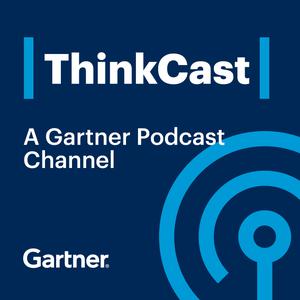 Gartner ThinkCast
Gartner ThinkCast
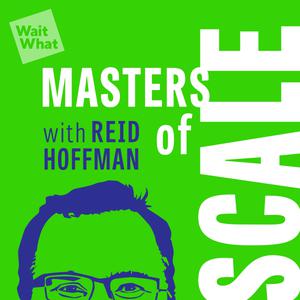 Masters of Scale
Masters of Scale
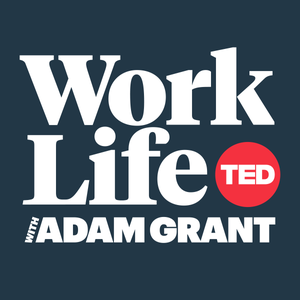 WorkLife with Adam Grant
WorkLife with Adam Grant
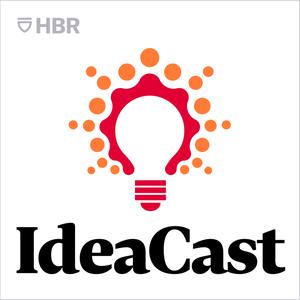 HBR IdeaCast
HBR IdeaCast
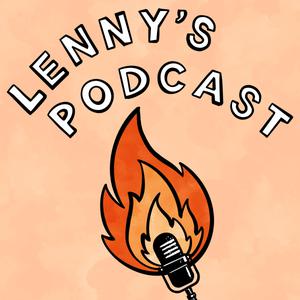 Lenny's Podcast: Product | Growth | Career
Lenny's Podcast: Product | Growth | Career
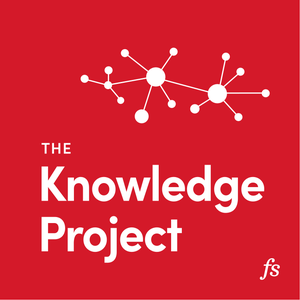 The Knowledge Project with Shane Parrish
The Knowledge Project with Shane Parrish